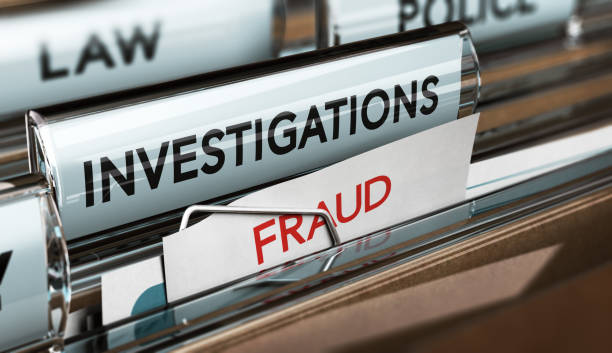In the world of insurance, trust is the cornerstone of the relationship between policyholders and insurance providers. However, the unfortunate reality is that insurance fraud exists, undermining the integrity of the industry. Insurance fraud comes in various forms, ranging from exaggerated claims to elaborate schemes. In response, insurance companies conduct thorough investigations to uncover fraudulent activities. In this article, we will delve into the intricacies of insurance fraud investigation, exploring its significance, common types of fraud, and the methods employed to detect and prevent fraudulent activities.
The Significance of Insurance Fraud Investigation
Identifying Fraudulent Activities
Insurance fraud can lead to significant financial losses for insurance companies. Investigating suspicious claims allows insurers to identify and address fraudulent activities promptly.
Protecting Honest Policyholders
Insurance fraud contributes to higher premiums for all policyholders. By investigating and preventing fraud, insurance companies work to maintain fair and reasonable premium rates for honest policyholders.
Upholding Industry Integrity
Insurance is built on trust and integrity. Investigating and combating fraud helps maintain the credibility and reputation of the insurance industry as a whole.
Common Types of Insurance Fraud
-
Exaggerated Claims
Policyholders may attempt to inflate the value of their claims by exaggerating the extent of damages or losses. This type of fraud is one of the most common and can occur in various insurance sectors, including auto, home, and health insurance.
-
Staged Accidents
In the realm of auto insurance, some individuals orchestrate accidents intentionally to make fraudulent claims for vehicle damage, injuries, or both. These staged accidents often involve multiple parties collaborating to deceive insurance companies.
-
Fake Injuries or Illnesses
Fraudulent claims related to health insurance may involve policyholders faking injuries or illnesses to receive unwarranted medical reimbursements. This can include submitting bills for treatments that were never provided.
-
Property Insurance Fraud
Property insurance fraud may involve false claims regarding theft, damage, or loss of valuable items. In some cases, policyholders may even attempt to damage or dispose of their own property to make a claim.
-
Arson
Arson, or intentionally setting fire to property, is a severe form of insurance fraud in the realm of property insurance. Perpetrators may seek financial gain by collecting insurance proceeds after deliberately causing a fire.
The Insurance Fraud Investigation Process
-
Claim Evaluation
The investigation process often begins with a thorough evaluation of the insurance claim. Investigators assess the details provided by the policyholder, looking for inconsistencies or red flags.
-
Data Analysis
Data analysis plays a crucial role in identifying potential fraud. Investigators leverage technology to analyze patterns, compare information, and detect anomalies that may indicate fraudulent activities.
-
Surveillance
In cases where fraud is suspected, investigators may conduct surveillance to gather additional information. This could involve monitoring the activities of the policyholder to verify the legitimacy of their claims.
-
Interviews and Statements
Interviewing involved parties and obtaining statements is a standard part of the investigation process. Investigators may question the policyholder, witnesses, or any individuals involved in the claimed incident to uncover inconsistencies.
-
Collaboration with Law Enforcement
In cases of suspected fraud, insurance companies may collaborate with law enforcement agencies. This collaboration enhances the investigative process and increases the likelihood of legal action against perpetrators.
Prevention and Deterrence Measures
- Education and Awareness
Promoting awareness about insurance fraud and its consequences can serve as a preventive measure. Educating policyholders about the repercussions of fraudulent activities helps deter potential offenders.
- Advanced Technology Solutions
Insurance companies leverage advanced technology solutions, such as data analytics and artificial intelligence, to enhance their fraud detection capabilities. These technologies enable swift analysis of large datasets, flagging unusual patterns or behaviors.
- Strict Anti-Fraud Policies
Establishing and enforcing strict anti-fraud policies within insurance companies sets a clear stance against fraudulent activities. Clear consequences for engaging in fraud act as a deterrent.
- Collaboration with Industry Partners
Collaboration between insurance companies and industry partners, including law enforcement agencies and regulatory bodies, strengthens the collective effort to combat fraud. Shared information and resources contribute to a more robust defense against fraudulent activities.
Legal Consequences of Insurance Fraud
- Criminal Charges
Individuals found guilty of insurance fraud may face criminal charges, depending on the severity of the offense. Criminal charges can lead to fines, probation, or imprisonment.
- Civil Penalties
In addition to criminal consequences, perpetrators of insurance fraud may face civil penalties. This can include the obligation to repay the fraudulently obtained funds and additional fines.
- Loss of Insurance Coverage
Policyholders engaged in fraud risk losing their insurance coverage. Insurance companies may cancel policies or refuse to renew them, leaving individuals without the protection they need.
Conclusion
Insurance fraud investigation is a critical aspect of maintaining the integrity of the insurance industry. By identifying and addressing fraudulent activities, insurance companies protect honest policyholders, uphold industry standards, and contribute to fair and reasonable premiums. The investigation process involves a combination of data analysis, surveillance, interviews, and collaboration with law enforcement. As technology continues to advance, insurance companies are better equipped than ever to detect and prevent fraud, ensuring a more secure and trustworthy insurance environment for all stakeholders.






